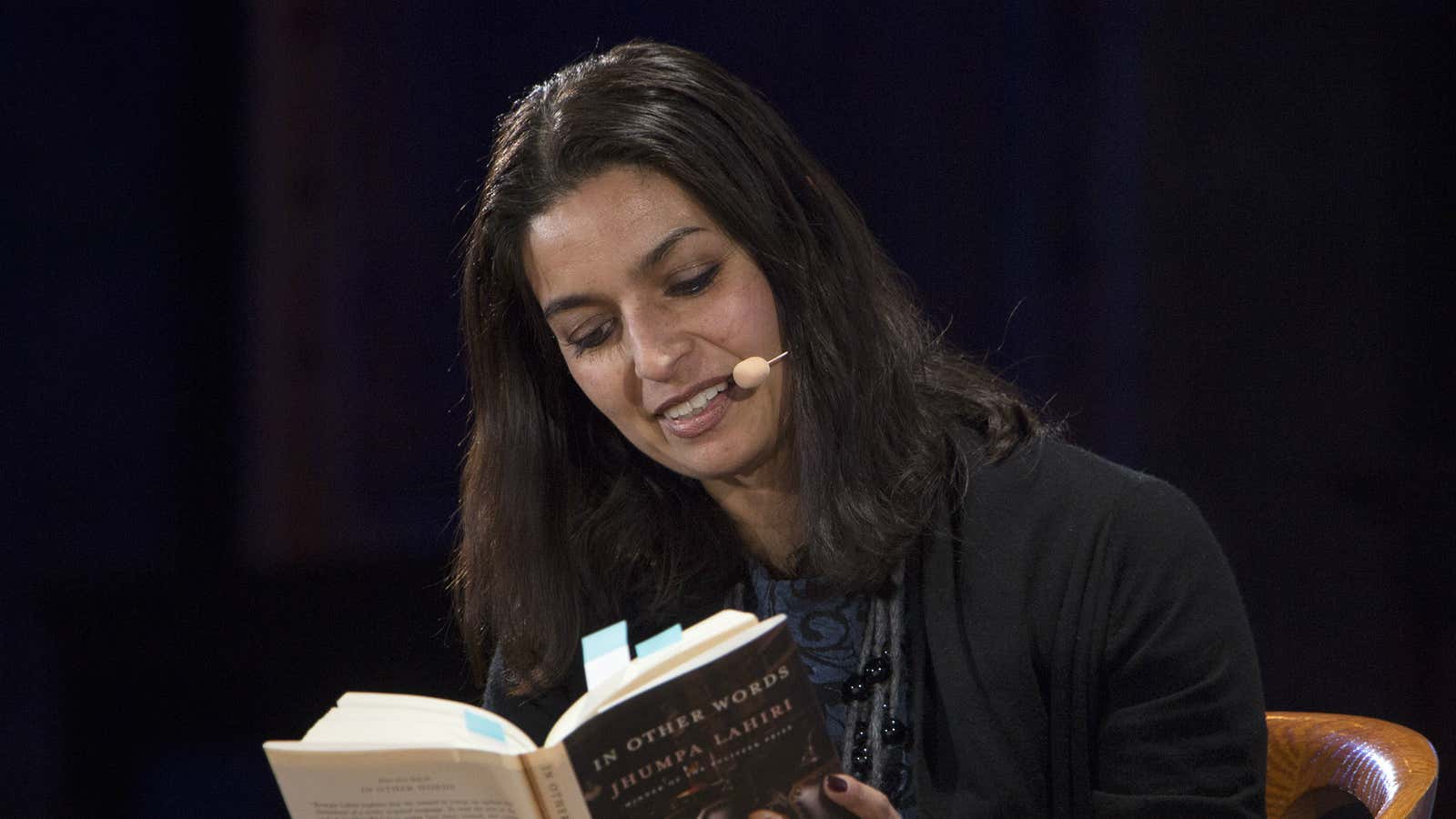Jhumpa Lahiri says she has no mother tongue. The Indian-American author grew up in a home filled with Bengali, but spoke English at school and with friends. And for her latest book, In Other Words, the Pulitzer prizewinner abandoned both languages, to write entirely in Italian.
Lahiri describes how she moved, with her family, to Rome in order to completely immerse herself in the language. She left behind her library and stopped reading in English entirely.
There are many reasons for this pilgrimage, including a connection with Italian, and a deep need to recreate the cross-cultural journey her parents made in moving from India to the US. But Lahiri also says that there were artistic reasons for learning how to write in a new language.
“From a creative point of view, there’s nothing so dangerous as security,” she writes in the autobiography.
Lahiri expanded on that idea at a New York Public Library event on Thursday (Mar. 3), telling event organizer Paul Holdengräber that she hated feeling settled.
“I just feel instinctively it’s not right. It’s not right to feel comfortable,” she said. “I noticed that the moment at which I wanted to leave New York, when I started to feel the need to go away and to leave it behind, was precisely at the moment when life was getting very settled. Once I realized life had gone into gear and was moving along, that was the moment I had a sudden deep desire to get out.”
By grafting herself onto Italian, Lahiri noted, she also found a means of growing in other directions.
Though we might not all have the inclination or ability to move abroad and expand our linguistic skills by learning a language afresh, Lahiri’s views on the connection between security and creativity hold true.
John Cabra, associate professor at the International Center for Studies in Creativity at Buffalo State University, tells Quartz that new experiences and leaving one’s comfort zone are essential for building a broad and diverse working memory. This in turn allows the brain to create original associations, and so spark creativity.
“The more diverse experiences you have from which to draw, the better the connections when the brain starts to look for those associations that fuel creativity,” he says.
There are numerous studies showing that international travel, multiculturalism, and bilingualism specifically are linked to greater creativity. But Cabra says there are other ways to go outside your comfort zone: Taking a different route to work is a small start, for example, or going to an undiscovered section of the library and choosing a book unrelated to your subject area.
It can be particularly dangerous to sink into your comfort zone today, says Cabra, as the world is changing so fast. Those who refuse to change and adapt to new experiences can end up feeling “paralyzed” by the shifts taking place around them.
What scares us, in the end, can be far less terrifying than avoiding our fears. So those who want a creative life should follow Lahiri’s example, and flee from the threat of feeling secure.
